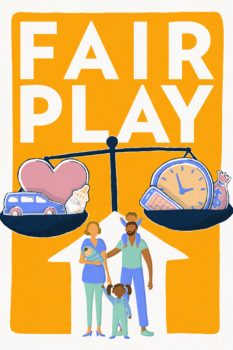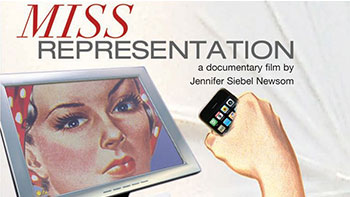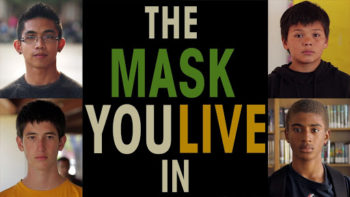Let’s be real, subtlety has never been The Bachelorette’s thing and this season is no exception. Producers have finally cast the show’s first Black lead and, in the most obvious and tired choice possible, are making racism a plotline in her “journey to find love.” To create the drama, they cast Lee Garrett, a bland contestant with a Southern drawl, a bio that simply says “Singer/Songwriter”, and a Twitter feed full of racist comments.
This decision is both problematic and triggering, and it’s been driving a lot of the action on a show watched by more than 4 million people. So while we’re not trying to dissuade Bachelor Nation, as the fans are affectionately called, from watching, we are hoping this large (and largely white) audience learn something about how racism works, specifically:
1. Racism isn’t rational
Through the six episodes that have already aired, it’s clear that Lee Garrett’s racism isn’t as straightforward as the media and film often portrays it. Not everyone who has racial biases uses derogatory words or carries around a Confederate flag. Racism isn’t hating all people of a certain group – it’s contributing to a system of oppression that tells some people they are less valuable than others, based on their race. That’s why having “Black friends” doesn’t make you not racist.
In many ways, Lee embodies the perfect example of modern racism in this country. Yes, he is interested in Rachel who is a Black woman, but he actively uses racist tropes to manipulate and dehumanize Kenny King and some of the other Black contestants.
In Monday night’s episode, Will Gaskins, another contestant, pulls Lee aside to try to talk to Lee about why using the word “aggressive” might affect Kenny explaining: “When you call him aggressive, there is a long-standing history in this country of regarding Black men in America as aggressive to justify a lot of other things.” Lee then responds to the camera “I don’t understand the race card, but it got played apparently. I don’t respect that decision. I just don’t.”
This moment exposes Lee’s true colors. Instead of working to understand his privilege and how his words play into harmful stereotypes, he doubles down on his actions and refuses to acknowledge how race plays a role in his action and Kenny’s reactions to them. Lee’s racism isn’t rational but it is racism.
2. Removing structural barriers is just the beginning
These episodes clearly demonstrate that The Bachelor franchise still has a (big) problem with race. Surprise: simply casting a Black person as the lead didn’t fix the problem! Just like having a Black President didn’t end racial inequality in America, having a Black bachelorette doesn’t remove the show’s tendency to misunderstand and misrepresent people of color.
Take for example how producers used Kenny’s black eye last night. They continuously interspersed flashbacks of Kenny’s hurt face between shots of Kenny and Lee arguing — constructing a lie based on the ugly premise that the audience would be thrilled to watch a racially charged fight between the two contestants. Of course Kenny actually got injured in a show-sanctioned activity: in a viking duel with Adam, a white contestant. And of course, the producers didn’t leverage Adam’s equally bloody eye, showing their racial bias in seeing more drama in a “violent” Black man than in a white one.


To give credit where it’s due, The Bachelor franchise is making progress. Maybe they couldn’t resist playing into ugly stereotypes of Black men by editing Kenny’s injury to look like something it wasn’t, they also revealed his true character as a dedicated and emotionally vulnerable father who ultimately chose to go home and be with his daughter.
We appreciate The Bachelorette showing a diverse representation of Black men but they must do more to fully humanize their subjects. They need to stop using racism as a “dramatic” plotline and treating Bachelorette Lindsey with enough respect to reject contestants like Lee before they ever appear on the show.
3. Interracial love is normal
With the diverse cast of suitors, Rachel has made it clear that each person is interesting and attractive to her for reasons beyond race. Through diverse casting and equal treatment on dates, the show makes it clear that race has nothing to do with an individual’s ability to connect with Rachel. With her in the lead, the show portrays interracial love in a deeper way than the traditional Guess Who’s Coming To Dinner trope.
However, the show also does not ignore that race is a factor. In last night’s episode, Eric worries that Rachel isn’t as interested in the Black suitors. By airing his concern in a fair and just manner, The Bachelorette shows how when you are a Black man, race will always be a factor while dating and that’s ok. By refusing to be colorblind in their approach, The Bachelorette avoids the trap of exotifying the interracial relationship.
The Bachelorette isn’t afraid to show both perspectives and the complicated nature of relationships. They are messy and and multidimensional and should be portrayed that way. While it is problematic The Bachelorette clearly made a conscious decision to make race a storyline, we must continue to push for diverse representation in our media, culture, and yes even in reality television.




